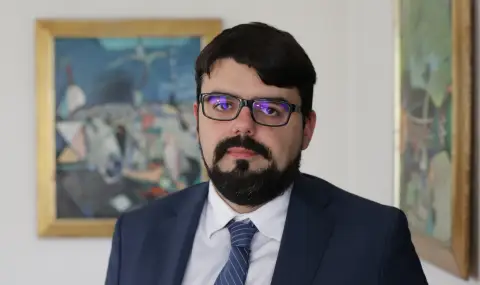We have at least BGN 1.4 billion under the Just Transition Mechanism, which should be used to secure new jobs. This is what Martin Vladimirov, an energy expert from the CID, told BNR.
"In the end it will happen that we will have to close the plants from today to tomorrow. It's about the next two years. Then all the workers who have been lied to that they have a future in this sector will take to the streets and there will be no government that can hold such a protest and make decisions that are extremely harmful to the economy. Instead of giving money to kalpak to quell social discontent, it is good to start working - to bring these people out of this dependence and provide them with a new future.
Part of the problem is that wages in the "Coal Power & Mining" are very high. They are much above the average in Bulgaria. This becomes a brake on the search for alternative development. Since the unions, and the state, give mixed signals about the future of the sector, about its sustainability from an economic point of view, people do not think at all that they can be realized in another sphere. When it comes time for change and specific closing dates, they take it as a kind of mockery.
These are bankrupt companies that will have a very difficult time surviving on a market basis, he pointed out in the show "Sunday 150".
Currently, there is no political will to adopt the necessary reforms that are included in the PVU, noted Vladimirov.
"Until these are accepted, it is very difficult to imagine how the second payment tranche will be approved. Some EU countries have already completed their fourth payment.
Greece has made a firm decision to close its coal plants before the end of this decade. Pours huge funds – most of the EU, in the transformation of their coal regions. There the so-called "just transition" is in full force. It is invested in huge capacities for the production of renewable electricity, in hydrogen, in retraining of workers.
The postponement of the reforms began as early as 2022. The more cosmetic changes have already been made. If we look at the number of reforms that have been implemented, Bulgaria is doing relatively well. The problem is that we have committed to some key energy reforms without which we will not get the funds unless there is some very high-level political pressure.
I cannot say exactly to what extent the Commission is prone to major compromises, he pointed out, however.
"The Council to some extent has the final word, and in this context over the years we have observed how Bulgarian politicians have used their direct connections with the Commissioners to bypass to some extent the middle echelon of decision-making in the EC. Something similar can happen now, but it is not a good practice. If we compromise these reforms and delay them further, we undermine a decade of possible transformation and energy transition. The reforms that we have implemented in PVU are key to taking the Bulgarian economy to new heights".
We are postponing the liberalization of the electricity market not because we care about vulnerable energy consumers and energy poverty, but because until the wholesale and retail markets are fully liberalized, Bulgaria can grant huge subsidies to coal-fired power plants, noted Vladimirov.
p>
"At the moment, they function not because they are competitive on the market, but because Bulgaria pours huge funds into them".
The reaction in the EC is one of shock and surprise that we are taking a step back again, after we have done quite a good job on the PVU, explained Martin Vladimirov.
"In recent months, the government has done a lot of work to prepare the annex to the PVU, which is no less important. All work would continue with the submission of a list of projects and drive the entire process under the Recovery Plan. The Commission looked forward to what they believed to be the formal approval of this annex by Parliament. That didn't happen.
The EC is also doing its best to look for compromises and middle options in the implementation of the reforms. For the Commission, it is important that we complete the processes that are laid down in the RAP. It is strange for them that Bulgaria does not want to take this next step and help itself and the economy shift to a new gear.
